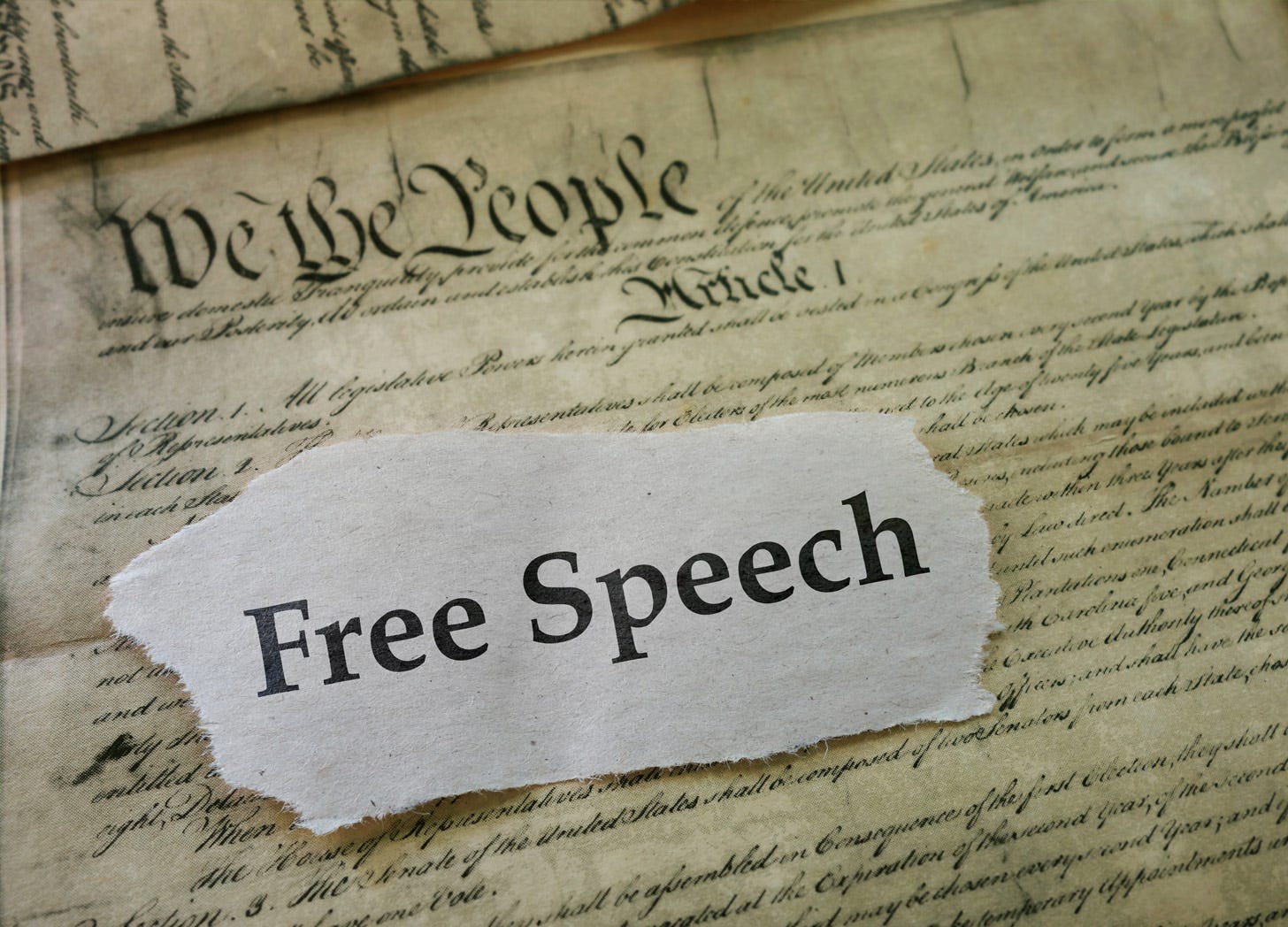Free Speech Under Attack in the Shadow of Violence
I was on vacation on September 10 when I learned that conservative activist Charlie Kirk had been assassinated during a debate at Utah Valley University. Within hours, graphic footage spread across social media. Some on the political left openly celebrated his death. Others reacted with horror and sadness. For me, the only thing that stood out in that moment was this: he left behind a wife and kids. Whatever you think of his politics, violence should never be the response to views you don’t like.
But what followed in the wake of Kirk’s death may be just as alarming. Instead of uniting around the idea that political violence is unacceptable, we’ve watched an aggressive campaign to weaponize the tragedy against free expression.
Days after the shooting, a website called Charlie’s Murderers appeared. It was registered anonymously through a privacy service in Iceland. Its purpose was clear: to track down and expose people — mostly on the left — who supposedly “celebrated” Kirk’s death.
The site functioned as a public doxxing platform. It published names, employers, email addresses, and social media accounts. Thousands of submissions poured in. Some were real. Many were fabricated. And the fallout was brutal: job losses, harassment, and death threats.
Canadian journalist Rachel Gilmore, one of the first listed, said she never celebrated Kirk’s death at all. But that didn’t matter. Being named was enough to unleash what she called a “tsunami” of threats that turned her life into a living hell.
This wasn’t about justice at all. It was about punishment. And it looked exactly like the same kind of “cancel culture” the political right has spent years railing against.
Civil liberties advocates immediately drew parallels to McCarthy-era blacklists. They were right. When the government or a movement starts compiling lists of enemies based on political speech, we’ve abandoned democratic values.
Vice President JD Vance only made matters worse by publicly encouraging Americans to report anyone who celebrated Kirk’s death. What does “celebrated” even mean? A sarcastic tweet? A critical remark? Once the government invites citizens to police each other’s speech, the line between free society and authoritarianism starts to blur.
The climate of censorship escalated further on September 18, when ABC abruptly pulled Jimmy Kimmel Live! off the air. Kimmel had suggested during a monologue that the accused killer, Tyler Robinson, had ties to Trump’s MAGA movement. Investigators later said Robinson leaned far left. But the bigger story wasn’t Kimmel’s correctable mistake — it was the government’s response.
FCC Chairman Brendan Carr, a Trump appointee, threatened Disney and ABC with regulatory consequences. He even hinted that broadcast licenses could be at risk. That’s not media criticism. That’s the government strong-arming networks into silence.
Oddly enough, one of the clearest defenses of free speech came from Tucker Carlson. During a special program on Kirk, Carlson argued that Kirk was a “free speech champion” and would never want his death used as a pretext for censorship. He criticized Attorney General Pam Bondi for suggesting that the Justice Department would “absolutely target” so-called hate speech.
Carlson was right: once the government starts treating “hate speech” as a crime, it decides what counts as hate. And once that happens, the First Amendment is just ink on paper.
Charlie Kirk’s assassination was tragic. But what’s happening in its aftermath could prove even more dangerous to our democracy. We’ve gone from condemning violence to punishing speech. We’re normalizing blacklists, doxxing campaigns, and government intimidation.
We are rolling into fascism, and we’re not going to stop it with clever posts with limited characters or Instagram posts. This is a direct attack on democracy. If the response is only hashtags and outrage cycles, then we’ve already lost.
We need to do more. We need to protest in the streets. We need to blanket the local, state, and national airwaves with clear, uncompromising messages of resistance. We need to oppose the threats to free speech with widespread pushback on every platform where speech still matters: social media, newspapers, radio, television, podcasts, and town halls.
The alternative is silence. And silence right now is complicity.
The lesson here should be simple: free speech, especially unpopular speech, is the foundation of a free society. If we lose that, we lose the ability to resolve our differences without violence. The tragedy of Charlie Kirk’s death should have reminded us of that. Instead, it’s becoming the excuse to forget it.

